
1. Jane Fraser
CEO, CitiMortgage Citigroup
When Jane Fraser was invited last year to play in a golf outing with Tiger Woods, her immediate reaction was one she might have had early in her banking career when confronted with a new challenge: terror.
Running three major business lines for one of the world's largest banks while raising a family leaves little time for golf, and Fraser, who has a handicap of 25, feared she might embarrass herself in front of the well-known golfer not to mention a nationally televised audience.
That fear dissipated, though, as Fraser recalled how readily she now embraces new challenges in her job. Her then-12-year-old son also helped to ease the tension when he reminded Fraser that all eyes would be on Woods, not her.
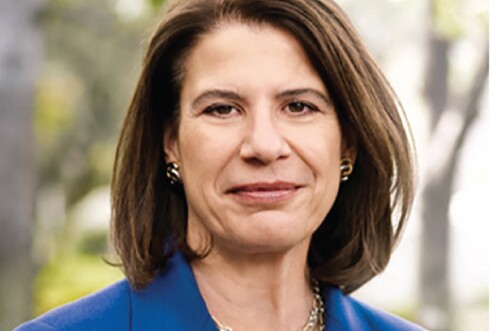
2. Barbara Desoer
CEO, Citibank, N.A.
It's been a fast ascent for Barbara Desoer, who just joined Citibank as its chief operating officer in October 2013 and moved up to the CEO role in April. She now reports directly to Citigroup CEO Michael Corbat. One of her responsibilities is overseeing corporate governance of the bank in more than 100 countries, and she is busy making improvements on that front. Among her achievements to date are establishing the framework for new lending limits and strengthening corporate oversight of the bank's subsidiaries, geographies and business lines. Desoer, who previously spent 34 years at Bank of America, is among Citi's highest-ranking females and takes seriously her obligation to mentor other women. She is co-chair of Citi Women, an initiative devoted to grooming and retaining top female talent. Since joining the company, she has also personally mentored and advised more than 15 women who have reached out to her.

3. Rilla Delorier
EVP, Consumer Channels, SunTrust Banks
SunTrust Banks wants to drive nearly all customer transactions to its digital channels, and it is Rilla Delorier's job to make sure it succeeds. A former chief marketing officer for the Atlanta company, Delorier was promoted in March to a newly created post overseeing its omnichannel strategy. In this role, Delorier is in charge of modernizing SunTrust's branches to create more self-service options for customers think video tellers and automated safety deposit boxes and upgrading its mobile and online banking capabilities. SunTrust is committing $100 million to the effort, which it projects will reduce call volumes by 50%, move 90% of transactions to self-service, and transition 50% of sales to digital channels.
That Chairman and CEO Bill Rogers tapped Delorier to spearhead what he calls "one of the most critical initiatives at our bank" shows how highly she is regarded within the company. Delorier had been chief marketing officer for six years, and the branding campaign Delorier developed last year, with the theme "Lighting the way to financial well-being," now serves as "the guidepost" for everything SunTrust does, according to Rogers. "She is one of the most creative and courageous leaders on my executive team," he says.

4. Jana Schreuder
Chief Operating Officer, Northern Trust
Jana Schreuder has long been one of Northern Trust's highest-ranking women and now she appears to be on the short list of potential successors to CEO Frederick Waddell. On Sept. 1, Schreuder moved up from president of the wealth management unit to the company's chief operating officer, reporting directly to Waddell. She is the first female COO in Northern Trust's 125-year history.
Though Waddell, 61, has not announced plans to retire, it's worth noting that he served as COO immediately before being named CEO in 2008. So no doubt Schreuder's promotion will help boost her chances for moving into the corner office someday. Prior to running wealth management one of Northern Trust's two major business units Schreuder oversaw operations and technology at the Chicago company, and before that she headed up risk management. She has a reputation for delivering results too: the FT Group has named Northern Trust Wealth Management the best private bank in America in each of Schreuder's three years at the helm.
Her community activities include serving as a director and treasurer for the Chicago Public Education Fund Board, a nonprofit dedicated to improving the city's public schools, and a director of the Chicago Lyric Opera House, one of the country's leading opera companies.

5. Mary Tuuk
EVP, Corporate Services, and Board Secretary, Fifth Third Bancorp
Mary Tuuk's role at Fifth Third might best be described as chief regulatory officer. At a time when compliance is of increasing importance, one of Tuuk's primary jobs is to stay on top of all the regulations and advise everyone at the company on how to deal with them, whether board members, senior executives, mid-level managers or rank-and-file staffers.A former chief risk officer at the $133 billion-asset Fifth Third, Tuuk also is drawing on her considerable experience with regulatory matters to help shape public policy. Among her top priorities is encouraging Congress to revisit the asset size it set for designating a financial institution as systemically important. In Fifth Third's view, the current $50 billion threshold is too low and should be raised. Or, at the very least, it contends, other factors should be taken into account, such as global interconnectedness.
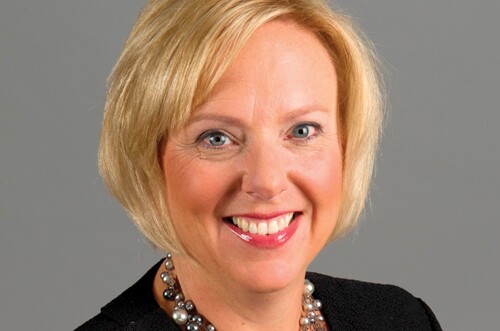
6. Amy Brady
Chief Information Officer, Technology and Operations Executive, KeyCorp
Amy Brady's influence at KeyCorp goes well beyond the technology duties that her title implies. As one of 11 executives on the leadership team, Brady works closely with CEO Beth Mooney to help set the direction of the $92 billion-asset Cleveland company, advising on everything from new products to potential acquisitions. Indeed, Brady says one reason she left a CIO post at the much larger Bank of America in 2012 to join Mooney's team was for the opportunity shape strategy.
Technology is at the center of almost every KeyCorp initiative these days, and the investments are producing some impressive results. For example, a redesign of the website and mobile platform contributed to a 36% increase in mobile banking transactions last year when compared with 2012. Cutting costs is another one of Mooney's top priorities, and tech-enabled efficiency initiatives are expected to help reduce overhead by an estimated $241 million this year.
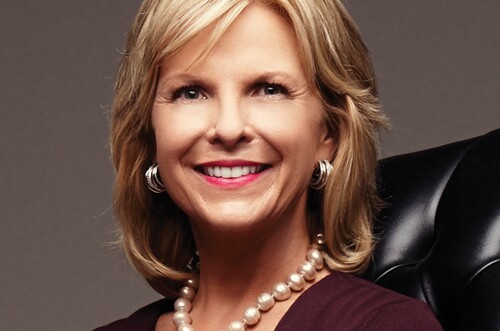
7. Patricia "Patti" Husic
President and CEO, Centric Bank
Patti Husic runs a community bank with just $305 million of assets, but she has outsized influence in Pennsylvania. Thanks to strong organic loan growth, her Centric Bank added 14 new employees last year even as many other banks were struggling to generate enough new loans to cover higher expenses. And outside of the bank, Husic has emerged as the state's leading advocate for advancing the careers of female bankers. While serving as chairman of the Pennsylvania Bankers Association her one-year stint ended in July Husic created a Women in Banking initiative that aims to get more women in executive roles through a series of training programs and networking events. The initiative generated considerable buzz on social media, and Husic takes satisfaction every time she hears from a woman who sees the potential to become a CEO. "Many women have written to me, sharing how much they value my journey to CEO and how much hope they have now," Husic says. "They now see themselves in this role."
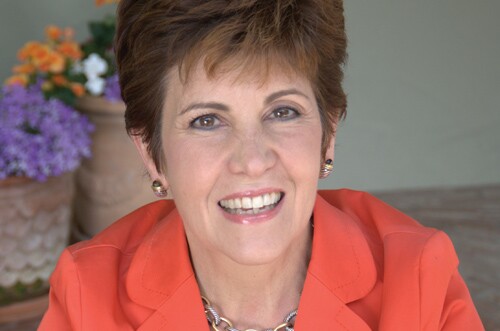
8. Deborah "Debby" Hopkins
Chief Innovation Officer, Citigroup, and CEO, Citi Ventures
Busy as it is searching for innovative startups in Silicon Valley, the Citi Ventures team also is looking internally at how its giant parent company could benefit from acting more like a startup itself. To that end, one of Debby Hopkins' major tasks over the past year was revamping the research and development process at Citigroup. The R&D labs, which are located around the globe and within different business lines, had been operating independently of each other and with fragmented spending for their projects. Arguing that the best way to achieve a breakthrough is to run a significant volume and variety of experiments, Hopkins led an initiative to improve collaboration among the labs, set up a central "acceleration fund" so they could quickly test promising new ideas, and create a pipeline of projects that all would be able to monitor. Hopkins also got approval to form a Venture Board, consisting of 10 of Citigroup's most senior business leaders. The board offers guidance not only on lab projects, but also in areas such as investing in startups, to help keep the initiatives at Citi Ventures aligned with the company's strategic priorities.

9. Diana Reid
EVP, Head of PNC Real Estate, PNC Financial Services Group
Diana Reid has built PNC Real Estate into one of the nation's largest commercial real estate lenders. Before Reid joined the Pittsburgh company in 2007, PNC wasn't even among the nation's top 20 CRE lenders; today it ranks among the top 10, with average loans outstanding of roughly $26 billion. Acquisitions of National City Bank and RBC Bank USA helped, but Reid also has expanded the business by adding new loan products aimed at real estate development trusts and multifamily developers. Her unit has accounted for the bulk of the commercial loan growth at PNC lately, reporting double-digit increases in each of the last four years. Outside of work, Reid is an active supporter of the arts, serving on the boards of both the Pittsburgh Opera and the Pittsburgh Ballet
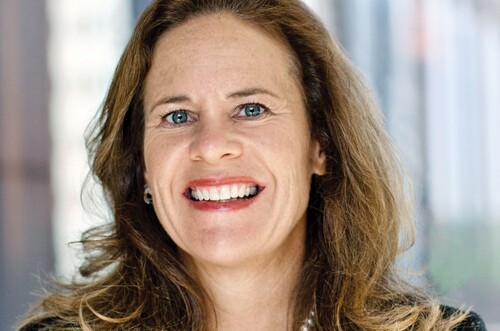
10. Helga Houston
Senior EVP, Chief Risk Officer, Huntington Bancshares
Huntington Bancshares' CEO Stephen Steinour makes few decisions without first consulting his chief risk officer, Helga Houston. Since hiring Houston in 2011, Steinour has sought her input on the risks associated with everything from new products to customer advocacy programs to acquisitions. He relies heavily on Houston one of the few female chief risk officers at a top-25 bank to manage Huntington's stress-testing process and other compliance programs and to ensure the bank maintains a low-to-moderate risk appetite across all lines of business. He also counts on her to help others be alert for anything that might expose Huntington to losses. "Helga is a trusted advisor," Steinour says. "She is the key voice in all internal risk management communications and is actively involved in all senior-level meetings."
A longtime executive at Bank of America, Houston is one of the industry's most high-profile risk management executives. She has done two stints on the board of the Risk Management Association, where she has helped to train scores of risk managers. She also serves on the risk council of the Financial Services Roundtable and is a founder and an active board member of the Risk Institute at Ohio State University's Fisher School of Business.
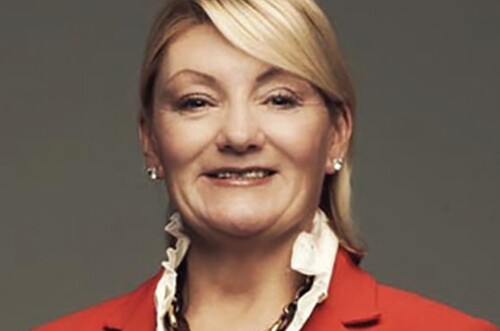
11. Mary Lynn Lenz
President and CEO, The Foothills Bank
After leading turnarounds at two underperforming banks and selling them at nice premiums, Mary Lynn Lenz questioned whether she wanted to continue working in the industry. But in the year she took off following the sale of Professional Business Bank in Pasadena, Calif., Lenz did "lots of soul searching" and realized she missed running a community bank. So in June 2013, she got back to work as the CEO of the Foothills Bank in Yuma, Ariz. The $295 million-asset bank had been modestly profitable, but the owner felt it needed new leadership. Lenz says her mission is to transform Foothills into "the premier community bank in the state of Arizona." It's not there yet Foothills' returns on assets and equity remain below industry norms but Lenz is off to a strong start. In her first nine months on the job, she recruited an entirely new management team, launched a branding campaign, developed a three-year strategic plan, redesigned its Bank Secrecy Act program, and built the largest pipeline of loans in the bank's 17-year history.
Though growing assets is her top priority, Lenz says what she enjoys most is coaching younger colleagues. Most of Foothills' senior managers are still in their 30s, so Lenz makes it a point to carve out time to prepare them for bigger challenges.
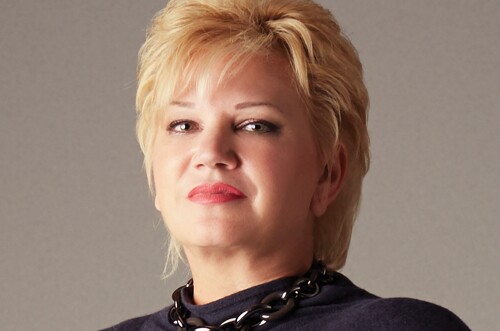
12. Michele Trolli
EVP, Chief Information Officer, M&T Bank Corp.
Michele Trolli has built a reputation throughout her career as an integrations specialist. Since joining M&T Bank 10 years ago, she's overseen the conversion of seven acquired banks to its technology and operations systems. She got early experience in this process as KeyCorp's development director, when she helped the Cleveland company absorb its acquisitions in the early 2000s.
One of M&T's most important initiatives this year is overhauling its Bank Secrecy Act and anti-money laundering compliance programs it is under regulatory pressure to do so to get approval for the acquisition of Hudson City Bancorp that it announced in August 2012 and Trolli is playing a role in that by helping facilitate the required technology changes.
Under Trolli's leadership, M&T also has invested $70 million in two new data centers, one in its hometown of Buffalo and another in Delaware. Trolli says the company had long outgrown the aging primary and back-up facilities that it relied on previously. One of them dated to 1991, when M&T was less than one-eighth its current asset size. Trolli is the only female among the 14 members of M&T's policy-setting management group. She is also on the mobile banking board of the Clearing House Association.

13. Bita Ardalan
EVP, Head of Commercial Banking for Western Markets, MUFG Union Bank
The Japanese-owned MUFG Union Bank has made no secret of its ambitions to become a top-10 lender in the United States, so it only made sense to put Bita Ardalan in charge of commercial lending in one of its most important regions. Ardalan is well-known around the company for delivering results. Case in point: the specialized lending group which she founded in 2010 to target industries like aerospace, nonprofits and health care was the fastest-growing division across all of commercial lending last year. Her momentum continued after she became the head of commercial banking on the West Coast in July 2013. In the second half of 2013, her group's total loans outstanding increased 32% when compared with the first half, while core earnings increased 10%.
Exceeding expectations has become something of a hallmark for Ardalan. She recently became an ambassador to the Looking Beyond Foundation, a women-run nonprofit that aims to improve the lives of children with special needs. At a gala in April, she and other volunteers set a fundraising record for the organization, taking in nearly $240,000 for special needs programs in the Los Angeles area.
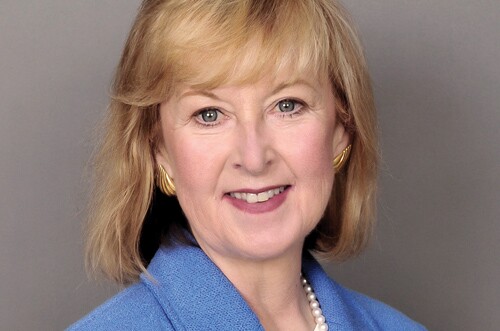
14. Rosemary Berkery
Vice Chairman, UBS Wealth Management Americas, and Chairman, UBS Bank USA
Those looking to boost sales of banking products to wealth management clients could pick up some pointers from Rosemary Berkery. When Berkery joined UBS Bank USA as its chairman in early 2010, it had just $85 million of mortgage loans on its books an indication that many wealth management customers were going elsewhere for home loans. So Berkery created a range of programs designed to encourage these clients to use UBS' banking products, and by the end of 2013, the mortgage portfolio had swelled to $6.7 billion. In one example, UBS advisers were able to land the $10 million mortgage of a wealthy individual through a program that lets clients finance 100% of a home's value by pledging eligible securities as collateral in lieu of a down payment.
It's not just in mortgages that the $46 billion-asset bank is seeing substantial growth either. Thanks in part to an incentive program that Berkery implemented to reward advisers for selling banking products and services, deposits jumped 48% in a three-year period ending Dec. 31, 2013, according to Federal Deposit Insurance Corp. data. Berkery has had a long career on Wall Street and is a former vice chairman at Merrill Lynch & Co.

15. Barb Godin
Senior EVP, Chief Credit Officer, Regions Financial
Compassion isn't a word often associated with banking, but Barb Godin believes it should be. So a few years ago, Godin decided that, from here on out, Regions' collections associates would be called "customer advocates" and would be trained in teaching cash-strapped borrowers how to improve their credit scores. She also implemented a program that offers borrowers who are about to lose their homes through foreclosure up to $3,000 to put toward rent on another home. "Don't steal a customer's dignity just because they are having financial problems," she says. "Instead see what you can do to help them and, in turn, make a bad situation better for the customer and the bank."
Godin, who joined Regions as a consumer credit executive in 2003 and became its chief credit officer in 2010, is also doing her part to create jobs in Regions' communities. Last year she established a unit within her division to evaluate small-business and private-banking credits. Historically, such loans fell under the commercial banking unit and, in her view, weren't being assessed as thoroughly as they could have been. The result: potentially good, job-creating loans simply weren't being made. The unit is now up and running and is already having an impact. Wait times on call backs have been cut in half, approval rates have risen significantly and loss rates have dropped drastically, Godin says.

16. Susan Skerritt
Managing Director and Head of Global Transaction Banking Americas, Deutsche Bank
Deutsche Bank hired Susan Skerritt just last year to run global transaction banking for the Americas, but her influence at the company is already being felt globally.
When she joined the German banking giant from Bank of New York Mellon, she quickly identified cross-selling as an area where Deutsche could improve and, in turn, strengthen its overall performance. Knowing that the best leads would likely come from inside Deutsche, Skerritt has spent much of her time tearing down the barriers between divisions such as the investment bank and wealth management and developing programs designed to educate staffers about products and services available elsewhere in the company.
The cross-selling initiative has been well received in the Americas and is one reason why revenue in the business she oversees came in 9% higher than projected last year. Skerritt is now working with other senior executives to implement a more formal cross-selling program globally.
Skerritt is also using her considerable leadership skills to help improve the lives of the less fortunate. She serves on the board of the Deutsche Bank Americas Foundation, a charity the company operates to provide support to nonprofit groups dedicated to rebuilding distressed neighborhoods, fighting hunger and improving children's education.
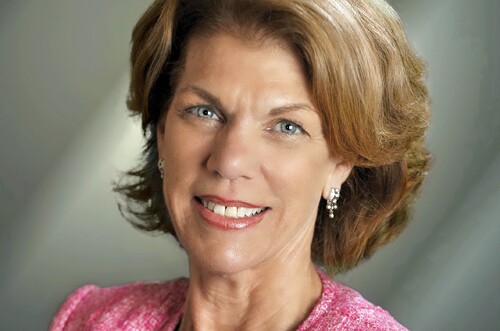
17. Diane D'Erasmo
North America Regional Head of Multinationals, HSBC Bank USA
Diane D'Erasmo has made her bosses look good for choosing her to manage the U.S. investments of overseas clients. HSBC Bank USA created the role for D'Erasmo in late 2012 as part of its global parent's broader mission of helping large and midsize corporations trade with and invest in more countries. In her first full year in the role, revenue from overseas firms doing business in the United States increased by 60% from the prior year, thanks largely to increased investment from companies in the emerging markets of China, Brazil and India. That surge in activity from lending, capital markets and transaction banking also helped boost the U.S. bank's stature within HSBC's 54-country banking network. The U.S. unit now ranks No. 3 in terms of revenue generated from multinational firms, up from No. 5 in 2012.
Andrew Blach, global head of business management for HSBC Holdings, credits D'Erasmo and her team with helping attract significant U.S. investments from firms across Asia, Latin America, Europe and the Middle East. "The growth of the U.S. business has been one of the key drivers to HSBC's overall success" with its international initiative, he says.

18. Wendy Breuder
Co-General Manager, Head of Midwest General Industries, U.S. Corporate Banking Division, MUFG Union Bank
Mitsubishi UFJ Financial Group is one of the world's 10 largest banking companies, and Wendy Breuder is one of the highest-ranking women in its U.S. operation, which was recently renamed MUFG Union Bank. She was hired in 2011 to run the corporate banking business in the Midwest, and promoted to co-general manager in 2012, making her the first female ever to hold that title.
Breuder arrived at the bank with a mandate to grow revenue in the Midwest by 40% within three years; she achieved that goal in less than 12 months. Her group posted a return on equity of 25.5% in the most recent fiscal year, among the highest of all the groups within U.S. corporate banking. She also was one of only three women selected to attend the company's global leaders' forum last year.
Breuder believes in "gender balance," and she says that the success of her group roughly half of her staff is female proves that diversity does matter. She is happy to report that the company's higher-ups have taken notice too. "Our success has prompted the bank to study the effect of gender diversity on overall team performance to shape future strategies," she says.

19. Linda Verba
EVP, Head of Service Strategy, TD Bank
TD Bank prides itself on its award-winning customer service, and it's up to Linda Verba to ensure that its standards don't slip. Formerly the head of retail banking, Verba transitioned to a newly created role as head of service strategy in February 2013 at the urging of then-CEO Bharat Masrani. Her responsibilities include challenging employees to constantly be thinking like a customer and encouraging them to develop new processes that take the pain out of everyday banking. This "Road to Legendary" initiative, as it's called internally, seems to be working. The bank's customer satisfaction rankings are well above the industry average in all of its major markets, according to J.D. Power's most recent survey of retail banking customers. Verba is also charged with creating a more diverse workplace, and is succeeding there as well. The bank was recognized by DiversityInc magazine as one of the top 50 companies for diversity in both 2013 and 2014.

20. Lisa Carnoy
Northeast and Metro New York division executive, U.S. Trust, Bank of America Private Wealth Management, Bank of America Merrill Lynch
Lisa Carnoy made an abrupt career change in April when she moved into private banking and wealth management. For the last two decades, Carnoy has worked in capital markets at Bank of America Merrill Lynch and its predecessor, managing initial public offerings, leveraged buyouts and other high-profile deals. But Carnoy has always had a personal interest in wealth management, and when an opportunity arose in the company's Northeast region, she pursued it.
Carnoy insists that her job really won't change much her main responsibilities will still be setting strategy, grooming talent and growing a business line. She also says there's plenty of room for collaboration between capital markets and private wealth management, given that individuals involved in investment banking deals are wealthy.
The opportunity to pursue this new challenge came about only because she raised her hand, Carnoy says, adding that she often encourages her employees to speak up if they want to be promoted or to pursue a new opportunity. "Don't assume your boss can read your mind," she advises.
She also routinely offers two other bits of advice to rising stars. First, exude enthusiasm, confidence and gratitude, because it will rub off on others. Second, savor the pressure. Banking, she says, is a difficult business and the individuals who succeed are those who relish giving advice and making decisions, particularly in times of volatility. Quoting tennis great Billie Jean King, she says, "Pressure is a privilege."

21. Julieann Thurlow
President and CEO, Reading Co-operative Bank
One thing that really gets Julieann Thurlow riled up is mutual thrifts converting to stock companies. She views it as just plain "stealing" for executives to profit from taking a depositor-owned institution public. "I understand it's lawful, but it's still wrong," she says.
As president and CEO of the $439 million-asset Reading Co-operative Bank in Massachusetts, she is working to preserve its legacy as a 128-year-old mutual. She has proposed an amendment to its bylaws that would require the approval of two-thirds of the board to initiate a conversion. The amendment, which is expected to come up for a vote at Reading Co-operative's annual meeting in December, also would prevent any officer, board member or employee from owning stock for five years, if a conversion is ever approved.
"What I'm basically doing is stripping from both the board and the management team any intention of allowing a lawyer to come and convince them that they could be very, very wealthy if they converted the bank," Thurlow says, adding that the board is supportive of her efforts.
She says mutuals are important because they are essentially owned by the people in the communities they serve and place great emphasis on giving back. Going public shifts their attention to shareholders instead.
"You see it in a lot of other communities where the banks go public and sell out to a larger organization that doesn't have any local leadership," Thurlow says. "Local nonprofits and the food pantries and the affordable housing projects, a lot of those things don't happen."
Thurlow is the incoming membership council chair at the American Bankers Association. She also meets regularly with state and local lawmakers, as part of the Massachusetts Bankers Federal Liaison Committee.
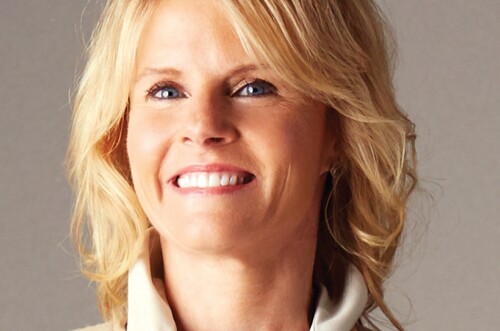
22. Christine Pierson
EVP, Consumer Services Division, UMB Financial
Christine Pierson is new to the banking business, but already she is showing a "genius" for it.
She joined UMB Financial in 2010, after spending nearly two decades in sales and marketing at AT&T and Bayer. It was the prospect of a challenge that drove her to switch to banking. "I'm kind of industry agnostic," Pierson says. "UMB Financial came up on the list, and of course banking had gone through a big change in the aftermath of 2008."
In her role as executive vice president of consumer services, she oversees the $17 billion-asset company's 112 branches, its service center and its online and mobile banking. Of the changes she has made at UMB so far, Pierson is particularly proud of having started a "digital genius" program. Associates schedule one-on-one meetings with customers to discuss offerings like online checking and bill pay. In about one-third of the more than 3,750 appointments last year, customers were introduced to mobile or online features that they hadn't previously used. The number of customers who reported using at least three self-service banking options jumped to 80% at the end of 2013, compared to 20% before the digital genius program started.

23. Grace Huebscher
President and Head of Multifamily Finance, Capital One
For Grace Huebscher, starting a new company from scratch meant the chance to build the work environment she always wanted. "When creating a new culture, I said, 'OK, how can I bring the best of the best of all the experiences I've had and replicate it here?" she says.
In just four years, the company she created, Beech Street Capital, had grown into the sixth-largest originator and servicer of government-insured multifamily loans. Now, after selling it to Capital One, she's working to keep the culture she has built intact. She says it helps that both organizations share similar values.
Huebscher gives a lot of credit to the passionate group of employees she brought together. "A lot of people when they build teams, they naturally tend to hire people like themselves. That's not how I've hired," she says. "I'm a big believer in the idea that the more diverse the group is, the better the decision-making."
Women make up nearly half of her 140 employees, but Huebscher doesn't hire with such stats in mind. Rather, she looks for a diversity of thought and people with "the ability to question question the boss, question how things are going," she says.
Huebscher suspects these preferences might have come from her upbringing. She was one of nine children, with "not a shrinking violet in the group," she says. She and her siblings were extremely competitive growing up, but also knew how to cooperate. "You had a lot of strong, divergent voices, so you knew how to hold your own, but were also accepting of alternate points of view," she says. "At the same time you had to learn how to work as a family, how to work as a team."

24. Donna Smith
EVP, Commercial Banking Group Leader, Associated Bank
Associated Bank in Green Bay, Wis., has been fattening its commercial loan portfolio in recent years, thanks in large part to Donna Smith. Smith, who heads commercial banking, arrived in mid-2011 from Bank of America and, since then, commercial lending has accounted for the bulk of the earnings growth at the $25.7 billion-asset Associated.
Smith is the highest-ranking female at Associated and, as such, has become its most vocal champion of diversity. She is in the midst of establishing an internal credit training program and her goal is for at least 30% of the candidates to be women. She is also working closely with the executive committee to raise the percentage of females in top jobs at Associated. Women hold 27% of its executive positions now and Smith aims to increase that to 30% within a year.

25. Jill Castilla
President and CEO, Citizens Bank of Edmond
Some might see it as a weakness, but vulnerability is more of a strength, from Jill Castilla's perspective. Having the freedom to "be a bit more vulnerable than men" gives women a competitive advantage in banking, she says. "We're just naturally that way, and we're less likely to develop an ego where we aren't willing to put ourselves out there."
It's a trait particularly suited to making calculated risks, as with technology investments. Castilla says she has experienced this firsthand at the helm of Citizens Bank of Edmond.
Although plans may not always pan out and investments might not always pay off, "we have a duty almost" to experiment and be willing to fail, she says. It's a matter of survival for community banks.
Castilla was in the military and worked at the Federal Reserve Bank of Kansas City before becoming the fourth generation of her family to run Citizens. She first rotated through various management positions to learn its inner workings. Then she used the insight she gained to make decisions and take risks that would spur growth and turn around the once-troubled $252-million-asset bank.
"We've been around for 113 years and want the opportunity to be around for another 113 years," she says.
Although Castilla can comfortably say that now, it wasn't the case when she joined Citizens five years ago. The bank had a lot of nonperforming assets and was under regulatory scrutiny. Castilla spent her first six months working 5 a.m. to midnight every day. She scoured its business practices and balance sheet for opportunities to improve, often making tough decisions with regards to personnel and bank assets. She even sold off three of its five branches to free up capital and lower the bank's real estate expenses.
All the effort has paid off. In March 2012, regulators lifted the written agreement with the bank. And in 2013, Citizens earned its highest profit ever.
Castilla says she learned her most valuable lessons about assertiveness and risk-taking in the nine years she spent at the Kansas City Fed. Her bosses there regularly sought her input and forced her to defend her ideas, thus helping her evolve as a leader. "If you were quiet and to yourself, they would always ask for your opinion," she says. "That was such a good process for me to go through, because then I had the confidence, in a more male-dominated industry, to put myself out there."





